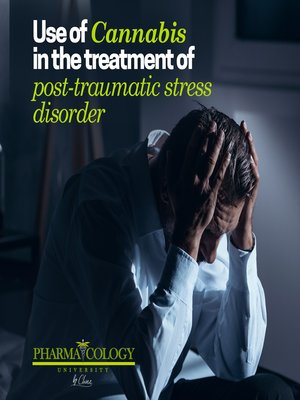Use of Cannabis in the Treatment of Post-Traumatic Stress Disorder
audiobook (Unabridged)
By Pharmacology University

Sign up to save your library
With an OverDrive account, you can save your favorite libraries for at-a-glance information about availability. Find out more about OverDrive accounts.
Find this title in Libby, the library reading app by OverDrive.



Search for a digital library with this title
Title found at these libraries:
| Library Name | Distance |
|---|---|
| Loading... |
An event that had an impact on you, an accident, the traumas of war...are situations that could cause anxiety, fear, insecurities, stress, among others. Millions of people have the well-known post-traumatic stress disorder and cannabis could be an ally in its treatment.
Post-traumatic stress disorder is defined as an exposure to a highly traumatic event, be it a bombing, rape, assault, kidnapping, accident, and more; where the lives of the people in the event are at risk. The images of the traumatic situation are experienced over and over again (flashback), against one's will and despite the time, it remains present and is manifested by intense anxiety reactions such as: worry, intense fear, lack of control, high physiological activation and others. This generates stress, exhaustion, intense emotions and irrational thoughts that increase in intensity.
Preliminary data indicate that medical cannabis and its compounds can manage symptoms of post-traumatic stress disorder related to hyper-excitability. Anxious responses to exteroceptive stimuli and trauma experiences that are context-dependent. While these clinical observations need to be sustained and replicated in larger populations, they provide a clue to the calming effects that cannabis may have on stress and anxiety behaviors. (Patel et al. 2017)
In this audiobook that Pharmacology University brings to you, we will explore in more detail what this disorder consists of, what are its clinical manifestations, how the endocannabinoid system acts, as well as the role that cannabinoids can have on the stress and fear experienced by people who suffer from the dreaded post-traumatic stress disorder.







